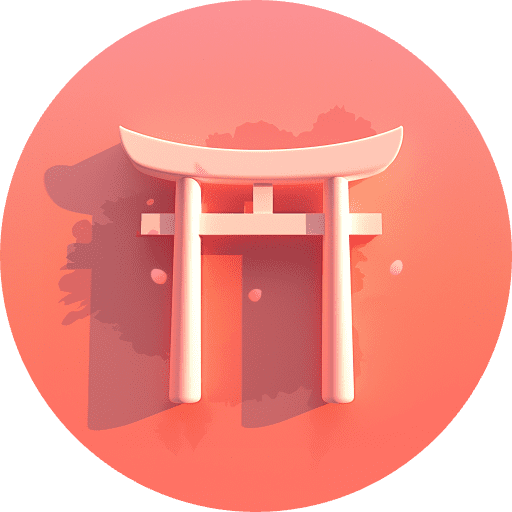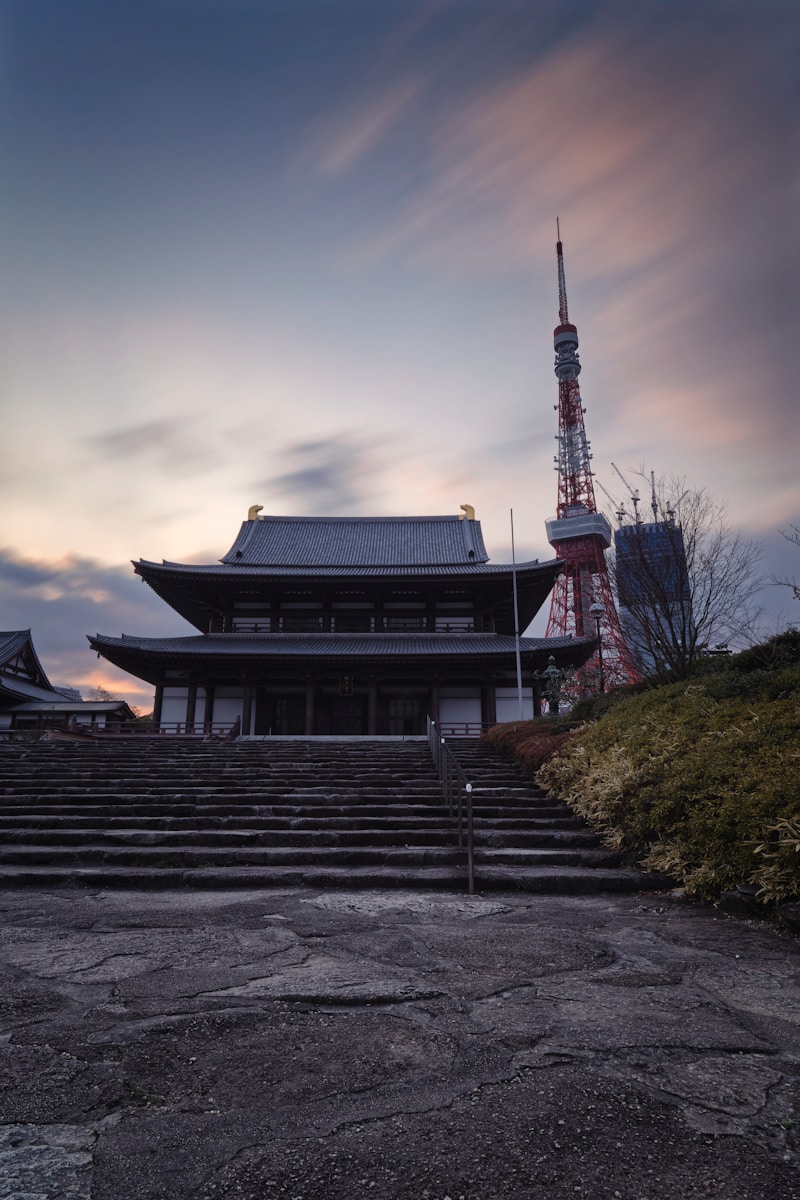Step beneath the shadow of Tokyo Tower into Zōjō-ji, an ancient temple that serves as a sanctuary of serenity and spiritual learning amidst the bustling cityscape.
Zōjō-ji Temple, a prestigious site nestled near the base of Tokyo Tower, is the main temple of the Jodo (Pure Land) sect of Japanese Buddhism in the Kanto region. Founded in 1393 and relocated to its present site by Tokugawa Ieyasu in 1598, Zōjō-ji serves as a significant spiritual and cultural hub, famously linked with the Tokugawa shogunate as the family temple where six of the Tokugawa shoguns are buried.
Historical Background
The temple’s history is deeply intertwined with Japan’s feudal past, playing a pivotal role during the Edo period as the Tokugawa family temple. This affiliation brought it immense wealth and influence, which is evident from the grandeur of its structures and the many cultural treasures it houses. Despite suffering damage during World War II, Zōjō-ji has been meticulously restored, maintaining its historical significance and architectural grandiosity.
Cultural Significance
Zōjō-ji is not only a place of worship but also a venue for various cultural and educational activities that promote understanding of Buddhist teachings and Japanese traditions. The temple grounds host numerous events throughout the year, including the poignant ‘Jizo Bon’ festival, which honors the souls of children who have passed away, showcasing the temple’s deep cultural and spiritual significance to the community.
Deities Enshrined:
The temple primarily venerates Amida Buddha, the Buddha of Infinite Light and Life, who is central to Jodo Buddhism. The teachings focus on compassion and enlightenment, aiming to bring spiritual comfort and moral guidance to followers.
Unique Offerings and Festivals:
- Jizo Bon Festival: A special event held in August, dedicated to children, symbolizing care and compassion for the souls of the young.
- New Year’s Eve Bell Ringing: Participate in the traditional ringing of the temple bell 108 times to rid oneself of worldly desires and welcome the New Year with purity.
- Setsubun Festival: Celebrated in February, this event marks the beginning of spring and includes rituals to cleanse evil spirits and bring good fortune.
Famous for Blessings:
- Family Prosperity: Many visit Zōjō-ji to pray for the health and prosperity of their families, reflecting its historical role in supporting the lineage of the Tokugawa family.
- Spiritual Enlightenment: Devotees and tourists alike seek guidance on their path to enlightenment, inspired by the temple’s rich tradition of Buddhist teaching.
- Protection: The temple offers blessings for personal and familial protection, a reflection of its enduring spiritual guardianship over the community.
| Address | 4-7-35 Shibakoen, Minato-ku, Tokyo, Japan |
| Direction | A short walk from Onarimon Station on the Toei Mita Line, or Shibakoen Station on the Toei Mita Line. |
| TEL | 03-3432-1431 |
| Business Hours | Temple grounds: Open 24 hours Main hall: 9:00-17:00 daily |
| Regular Holiday | No holidays |
| Main Blessings | Family Prosperity, Spiritual Enlightenment, and Protection |

